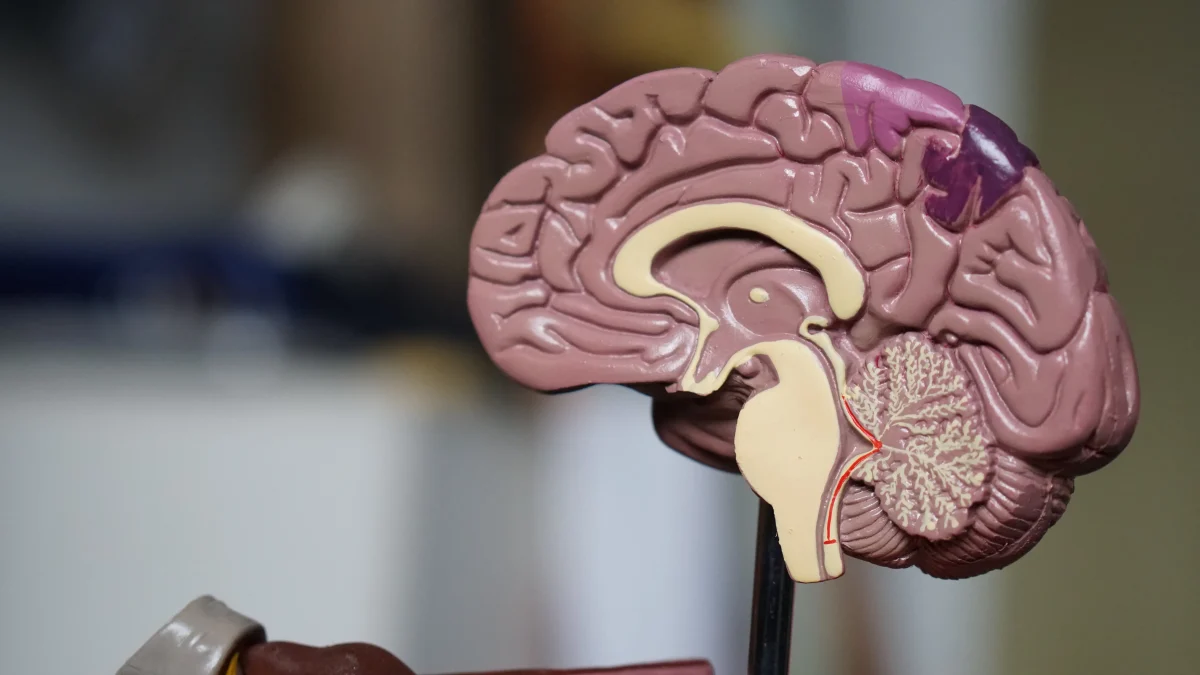
Struggling with Addiction?
Table of Contents
Inhalants are substances breathed in through the nose or mouth to produce a mind-altering or psychoactive effect. These substances are often relatively accessible and legal to buy, which gives the impression that they are safe. However, while inhalants may be legitimately purchased, they are often abused and can be highly addictive and harmful. Substance addiction can become demoralising, obstructing you from achieving your life goals.
If you’re struggling with an inhalant addiction, it is essential to know that accessible addiction counselling is available. CATCH Recovery can help you overcome the underlying causes of your dependence.

Download Brochure
Legal Statuses
As of 2023, in England, Scotland and Wales, it is illegal to sell inhalants, including solvent glues, to persons of any age likely to use them as an intoxicant.
Non-legitimate use of inhalants is currently controlled under the Psychoactive Substances Act 2016 (PSA). This means the production, supply and importation, but not possession (aside from in custodial settings), of addictive inhalants or their psychoactive effects is illegal.
Under the Psychoactive Substances Act 2016, it is an offence to supply addictive substances if a person knows or is reckless about whether they will be used for its psychoactive effects.
List of Abused Inhalant Drugs
There are functional inhalants such as albuterol, a substance that’s used to treat asthma. Still, there are also other types of inhalants that people use to get high.
These can be divided into solvents, nitrites, and aerosols. If you are aware of those terms, you will know that many products used in our homes can be abused and lead to intense substance addiction.
They are commonly found in everyday household products and can be abused for their intoxicating properties. Unfortunately, inhalant abuse is a significant issue in the United Kingdom.
Commonly abused inhalant drugs in the UK:
- Glue and adhesives: Common household glues, such as model glue, rubber cement, and super glue, contain volatile solvents that can be inhaled for their intoxicating effects.
- Aerosol sprays: Products like spray paints, air fresheners, deodorants, and hair sprays contain propellants that release volatile chemicals when sprayed. These substances can be inhaled to achieve a high.
- Gasoline and petrol: Inhalation of gasoline and petrol fumes, often obtained by sniffing fuel containers or vehicle gas tanks, is a dangerous and commonly abused practice.
- Nitrous oxide (Laughing gas): Nitrous oxide is a gaseous substance used in medical and dental procedures as an anaesthetic. However, it is also abused recreationally for its euphoric and dissociative effects. Nitrous oxide is commonly found in whipped cream dispensers and canisters known as “whippets.”
- Paint and paint thinner: The solvents in paint and paint thinner, such as toluene and xylene, can be inhaled for their intoxicating properties. These substances are commonly abused by individuals seeking a hallucinogenic or sedating effect.
- Correction fluid: Correction fluids, like typewriter correction fluid or white-out, often contain volatile solvents like trichloroethylene that can be abused for their psychoactive effects.
- Cleaning products: Certain cleaning products, such as spot removers, dry cleaning fluids, Nail polish removers and degreasers, may contain solvents that produce intoxicating effects when inhaled.
- Lighter fluid: Inhalation of lighter fluid fumes containing volatile hydrocarbons is another form of inhalant abuse.
Effects Inhalants Have on Us
Inhalants can alter how your brain relates to other parts of the body and may cause you to feel drunk or high. Most inhalants affect the brain in ways similar to depressants like tranquillisers, sedatives, or alcohol, although the effects are usually shorter-term.

Effects on the Mind
Over time, inhalants can change how your brain works, and you may feel sick when you are not using these substances. Withdrawals can cause short-term effects like dizziness, seeing or hearing things that aren’t real, slurred speech, and lack of body control.
Effects on the Body
Substance abuse can devastate the body, leading to various health complications. Here are some of the effects of inhalants on the body, supported by online references from the UK:
- Heart and lung disease: Inhalant abuse can cause damage to the heart and lungs. Prolonged inhalant use can lead to irregular heart rhythms, heart failure, and inflammation of the lungs. The toxic chemicals in inhalants can damage the heart muscle and impair the normal functioning of the respiratory system. According to the British Heart Foundation, inhalant abuse can cause lung damage and increase the risk of heart problems.
- Seizure and convulsion disorders: Inhalant abuse can trigger seizures and convulsions. These episodes result from the toxic effects of inhalants on the central nervous system, disrupting regular brain activity and potentially leading to seizures.
- Permanent loss of cognitive function: Prolonged inhalant abuse can result in permanent cognitive impairment and memory deficits. The chemicals present in inhalants can cause damage to brain cells and interfere with neurotransmitter function, leading to long-term cognitive impairments.
- Long-term psychosis: Inhalant abuse has been associated with the development of long-term psychotic symptoms, including hallucinations, delusions, and disordered thinking. These psychiatric effects can persist even after the cessation of inhalant use.
- Liver and kidney damage: Inhalants are often metabolised in the liver, and chronic abuse can lead to liver damage and dysfunction. Additionally, the toxic effects of inhalants may adversely affect the kidneys, potentially leading to kidney failure.
- Loss of vision: Certain inhalants, particularly those containing toluene, have been linked to optic nerve damage and vision loss. Inhalant abuse can lead to visual disturbances and, in severe cases, permanent vision impairment.
- Oral, throat, and lung cancer: Prolonged inhalant abuse, mainly through certain volatile solvents, can increase the risk of developing cancer in the oral cavity, throat, and lungs.
Are You Addicted to Inhalants?
If you or someone you know is using inhalants and suspect addiction, it’s important to be aware of the signs and symptoms.

Mental Health
Inhalant addiction can have a significant impact on mental health. Prolonged abuse of inhalants can lead to mood swings, depression, anxiety disorders, and even long-term psychotic symptoms. The toxic chemicals in inhalants affect the brain’s neurotransmitters and can disrupt normal cognitive function, leading to mental health issues.

Physiological
The physiological effects of inhalant addiction can be severe. Regular inhalant abuse can damage the heart, lungs, liver, and kidneys. It can also lead to neurological damage, impairing cognitive function and coordination. Long-term inhalant abuse can cause permanent damage to various organ systems, affecting overall health and well-being.

Symptoms of Inhalants Withdrawal
When an individual becomes dependent on inhalants, attempting to quit or reduce use may result in withdrawal symptoms. These symptoms can include restlessness, irritability, nausea, sweating, muscle cramps, tremors, and insomnia. The severity and duration of withdrawal symptoms may vary depending on the level of inhalant dependence.

Symptoms of Overdose
Overdosing on inhalants is a life-threatening situation that requires immediate medical attention. The symptoms of inhalant overdose can include confusion, dizziness, hallucinations, seizures, difficulty breathing, rapid or irregular heartbeat, and loss of consciousness. Inhalant overdose can lead to coma, brain damage, and even death.
If you suspect inhalant addiction or have experienced any of the symptoms mentioned, it is crucial to seek professional help. There are addiction treatment programs available that can provide support and guidance in overcoming inhalant addiction. Remember, recovery is possible, and seeking help is the first step towards a healthier, drug-free life.

Start Your Recovery Journey Today
The Stigma of Inhalant Use in the UK
The stigmatisation of people with inhalant dependence seriously affects government policies and counsellors. Key policies seeking greater reintegration and recovery, focusing on public health, will not succeed while stigmatising attitudes are pervasive.
Due to negative behaviours towards users, people suffering from an addiction to inhalant substances can be reluctant to acknowledge the problem and seek counselling. Employers often deny jobs to people suffering from such an addiction, and landlords can be unwilling to give them tenancies.
Call CATCH Recovery today if you are struggling with finding support to heal. We are here to help you, assist you and make you feel better inside and out.
Finding Treatment
When seeking treatment for heroin addiction in the UK, it’s essential to consider the available options that best suit your needs.
We provide comprehensive outpatient services and therapy packages tailored to support your recovery journey. If you don’t live around South Kensington, London, we can still find you a therapist.
Our online therapy offer includes standard timeframes for counselling sessions, including Cognitive Behavioural Therapy and Dialectical Behavioural Therapy. With our licensed therapist, you will have confidentiality and build a lasting connection.
In addition to the online therapy for addiction we offer, our centre can provide you with sober transport to and from our facilities so that you don’t need to worry about commuting for your in-person counselling sessions if you choose to have them.
CATCH Recovery will guide you toward the appropriate level of care for your inhalant addiction recovery.

Find Out if Outpatient Therapy Is Right for You
CATCH Recovery’s Promise
At CATCH Recovery, we work towards helping you attain long-term recovery and sobriety with kindness, care and determination. Our addiction counselling options will support you as you take this big step to recovery. Our compassionate addiction rehabilitation professionals offer evidence-based treatment regimens, including EMDR and holistic therapies, to foster healing and personal growth.
Many of our dedicated team of professionals have been through rehab themselves and are here to support you on the journey to recovery and sobriety.